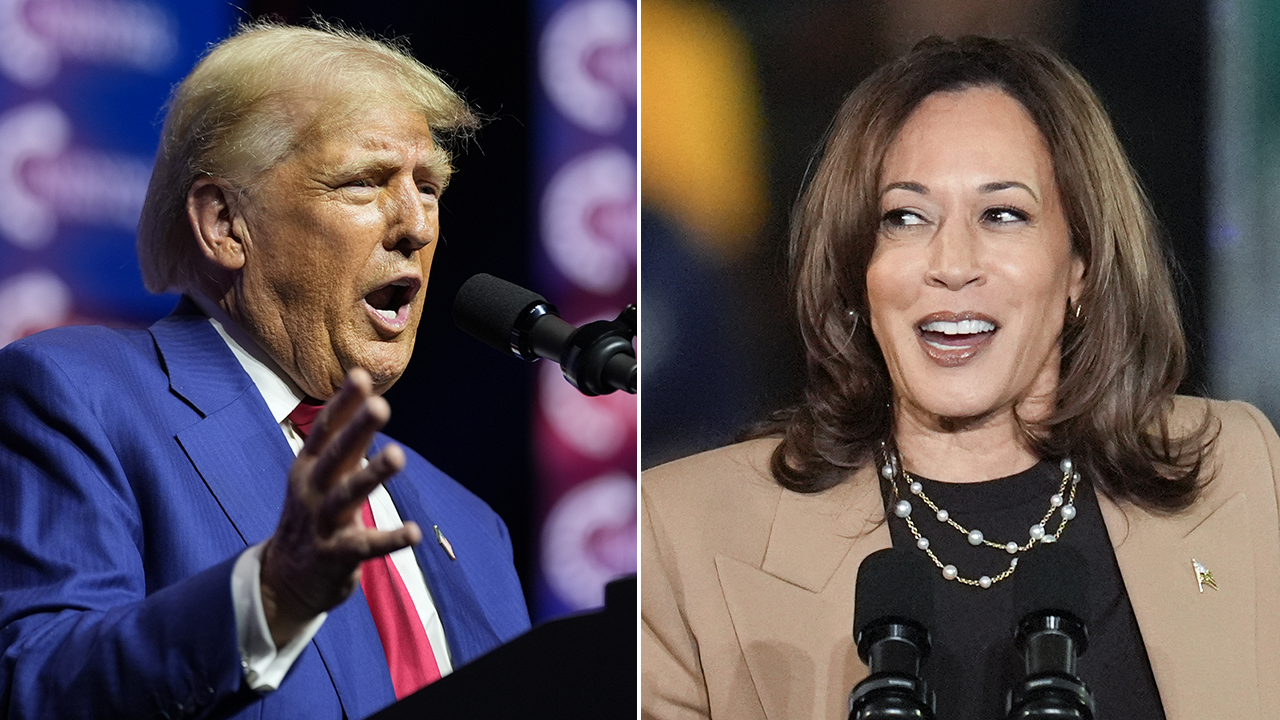Insight into the candidates' final push
Washington — The Republican National Committee asked the Supreme Court on Monday to put on hold a state high court decision that said election officials must count provisional ballots cast by a voter whose mail ballot was rejected because it was returned without a secrecy envelope.
The request for emergency relief sought by Republicans is the second involving the 2024 election to be filed with the Supreme Court on Monday. Earlier in the day, Virginia officials asked the high court to allow it to move forward with removing roughly 1,600 alleged noncitizens from state voter rolls.
Both requests for the Supreme Court's intervention come just over a week before Election Day and as millions of voters across the country have already cast their ballots early, either in person or by mail. In Pennsylvania, more than 2 million mail ballots have been requested, and roughly 1.4 million returned, according to the University of Florida Election Lab.
Pennsylvania is a crucial state that could decide whether Vice President Kamala Harris or former President Donald Trump wins the White House. Republicans warned that if the Pennsylvania Supreme Court's ruling is left untouched, "tens of thousands" of provisional votes may be counted. In the 2020 election, when many states made it easier to vote by mail because of the COVID-19 pandemic, roughly 1% of returned mail ballots in Pennsylvania were rejected because they did not have secrecy envelopes, according to an analysis from the MIT Election Data and Science Lab.
Republicans said that if the justices determine that a full stay is not warranted, they should order provisional ballots cast by voters whose mail ballots were defective to be set aside and if counted, they should be tallied separately and not included in the official vote count while the legal battle plays out.
"This case is of paramount public importance, potentially affecting tens of thousands of votes in a state which many anticipate could be decisive in control of the U.S. Senate or even the 2024 presidential election," lawyers for the Republicans wrote. "Whether that crucial election will be conducted under the rules set by the General Assembly or under the whims of the Pennsylvania Supreme Court is an important constitutional question meriting this court's immediate attention."
The Pennsylvania case arose after the state's primary election in April, when two voters from Butler County submitted mail ballots but failed to enclose them in secrecy envelopes. The state also requires voters to sign and date the mailing envelopes containing their ballots. Failure to comply with these requirements renders the mail ballot invalid.
Because the voters returned their ballots without secrecy envelopes, they were notified by the Butler County Election Board that their votes might not be counted and were advised that they could cast provisional ballots during in-person voting, and both voters did so.
But the county board of elections did not count those provisional ballots. After learning they were rejected, the voters sued in state court, arguing that the board was wrong to reject their ballots. The trial court disagreed, finding that the state's election code prohibits individuals who submit mail ballots that are "timely received" from having their provisional ballots tallied. A voter's error in returning a mail ballot was not found to be an acceptable reason to count a provisional ballot.
But the voters prevailed before the Pennsylvania Supreme Court, which ruled in a 4-3 decision that boards of elections must count provisional ballots cast by voters whose mail ballots are rejected for lacking secrecy envelopes.
While the dispute involves voters from Butler County, the Pennsylvania Department of State issued guidance last week stating that a provisional ballot may be issued when voters return a completed mail ballot that would be rejected and the voters believe they're eligible to vote.
Republicans urged the Supreme Court to pause the decision from Pennsylvania's top court, warning that if it remains in place, county boards "will be forced to ignore the Election Code's clear mandate and count provisional ballots cast on Election Day by those who submitted defective mail ballots."
They also argued that the state supreme court was wrong to change the rules regarding mail voting after it had started and so close to Election Day.
Melissa Quinn is a politics reporter for CBSNews.com. She has written for outlets including the Washington Examiner, Daily Signal and Alexandria Times. Melissa covers U.S. politics, with a focus on the Supreme Court and federal courts.

 By CBS (Politics) | Created at 2024-10-28 21:33:03 | Updated at 2024-10-28 23:20:59
1 hour ago
By CBS (Politics) | Created at 2024-10-28 21:33:03 | Updated at 2024-10-28 23:20:59
1 hour ago



